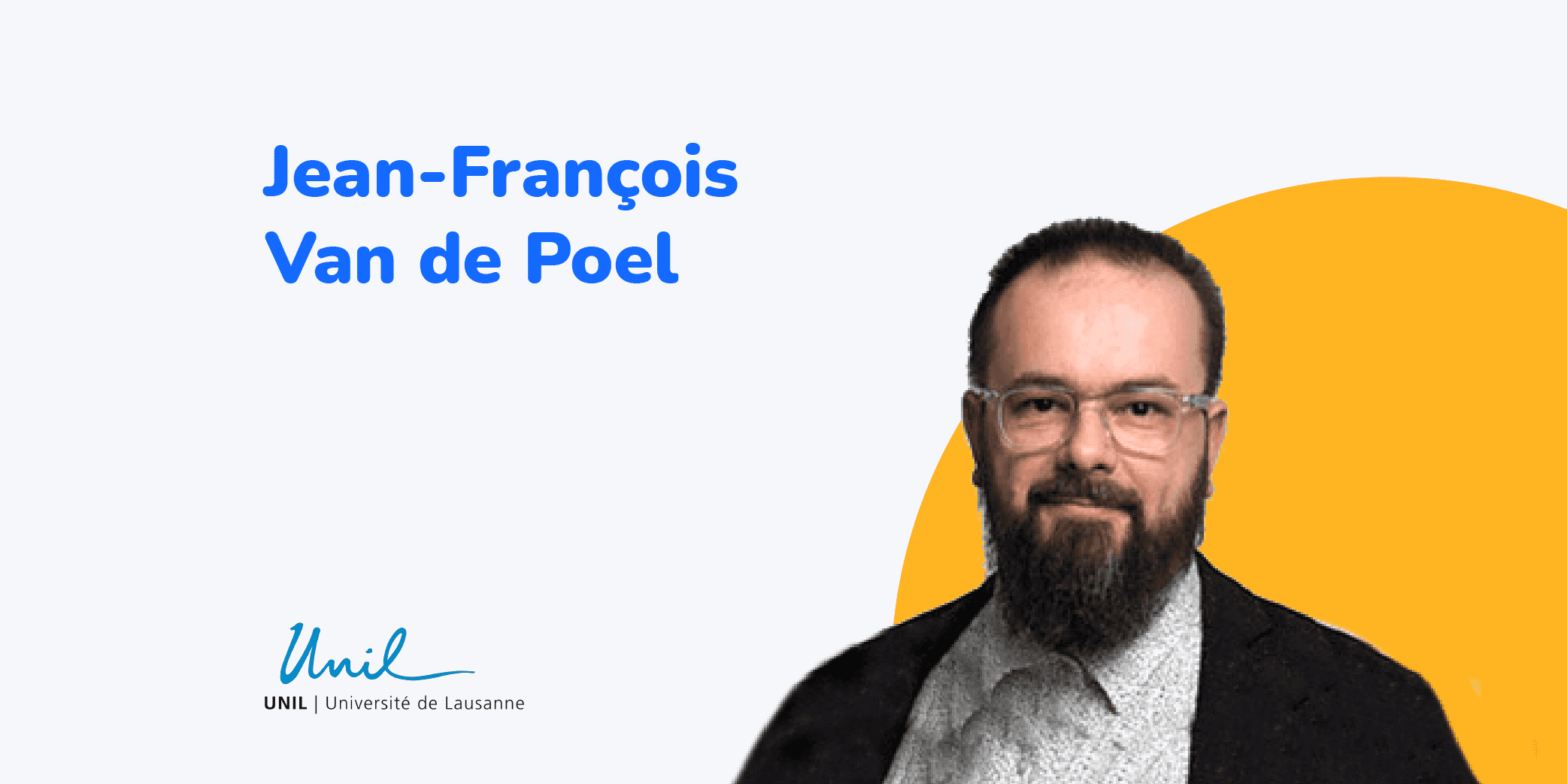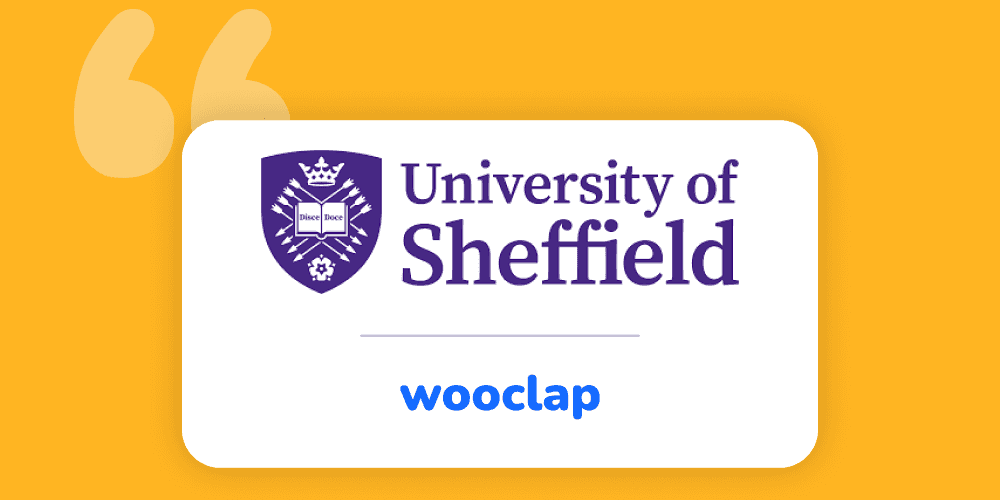Pedagogical continuity at the University of Lausanne
27.03.2020 • 6 minutes

Schools all over the world are organising themselves to ensure learning continuity. Jean-François Van de Poel, Head of Digital and Multimedia at the University of Lausanne’s teaching support centre, explains the strategy implemented in concrete terms.
How has the University of Lausanne prepared itself since the beginning of the epidemic?
While the coronavirus pandemic affected Italy, Switzerland was quickly affected as well and daily meetings were held between the management of the University of Lausanne (Unil) and the canton’s health authorities. The decision to close the facility was taken on March 13th, but it had been expected to happen for three weeks.
For us, moving our courses online was obvious because Unil chose to guarantee our students a full and valid semester. So we set up a strategy that allowed us to guarantee the students learning continuity, while leaving the freedom of pedagogical implementation to the faculties and teachers, because this is an important value in our country and our culture.
In concrete terms, the university gave the faculties one week to organise distance learning. It also set up a COVID-19 cell to inform the 16,000 students and this communication was relayed by the faculties. It was up to our teaching support centre to maintain the connection with the professors.
Which tools have you deployed?
Once the closure was announced, our priority was to put documentation online for teachers to help them design distance learning courses. We also organised about 30 webinars that reached around 500 teachers. The objective was to provide the basis for creating multimedia content, organising synchronous online sessions, structuring the course on Moodle or creating interaction.
To that end, we promoted the use of Wooclap: each webinar started with a brainstorming exercise and ended with a questionnaire. These sessions, which took place live to maintain a human presence, allowed teachers to discover the tool: Wooclap was previously used by about a hundred teachers during a free trial. We are certainly going to go up to 500 or 600 and it will be interesting to see if the teachers who have tested Wooclap in webinars as learners will want to use it in their lessons as teachers: the figures we will have in two or three weeks will show the adoption level of Wooclap, which seems to me to be a great interactivity tool, both in person and remotely.
How did you prepare yourself technically?
We had to strengthen our infrastructure: in addition to doubling the size of our intranet, we opted for a cloud solution at Ubicast to prevent teachers from putting their videos directly on Moodle, which is not a suitable tool for that. Indeed, if even 20% of our 3,000 teachers upload five or six videos each, we end up with loads of 4 or 5 terabytes: there’s no point in making Moodle cumbersome and potentially endangering our entire infrastructure! So it’s better to put the videos on a meta-server that is designed for this, which can handle more than 1,000 concurrent simultaneous connections on the same media.
However, we know that our infrastructures will suffer, in the same way that tools such as Teams or Zoom have experienced malfunctions. We have to know this and accept it. And favour asynchronous teaching to reduce the risk of overload.
« Our infrastructures are going to suffer. The risk of overloading must be reduced. »
Jean-François Van de Poel, Université de Lausanne
How was the beginning of distance learning?
The online courses started this week, on March 22nd. For some teachers, restructuring their course to create an online sequence is a real challenge. However, most of them have all the keys in hand to set up quality online courses.
Over the past week, the production of content has been very impressive: 400 hours of videos have been uploaded on Ubicast. It has to be acknowledged that they do not reach all the quality we would like: some teachers, for example, film hour-and-a-half long courses, whereas 15-minute pieces are preferred. But we obviously accept that, in this first wave of urgency, teachers film what they can as best they can: that is already very good. From now on, we will be running small webinars to improve the pedagogical quality of the lessons, with particular emphasis on the preparation of visual support and written narration.
In addition, our colleagues have created clips to accompany the students. The content is of high quality but in the form of commented powerpoint presentations: we are on the warpath, we don’t have the time to make beautiful productions in a studio. The most important thing is not to forget our students, and more broadly all students. That’s why these three tutorials, on time management, how to maintain the connection and stress management are available to everyone, free of charge, on YouTube.
« We’re on the warpath. We don’t have time to make great productions in a studio. »
Jean-François Van de Poel, Université de Lausanne
How do you see the next few weeks?
Everybody’s going to get their bearings. At Unil, everything is being done so students don’t waste their time and spend a normal semester: everyone is committed to this. We are also starting to think about evaluations and how to give more freedom to the faculties, for example, by making it possible to hold exams at home. But this is a legal problem that we are tackling with the Vault State on which we depend.
Another major issue is the closure of libraries. Less than a third of the works in our catalogue are available in electronic form. Scientific publishers would have to allow students free access to these resources for three months. Obviously, beyond the success of students, which is our driving force, we hope above all that this crisis will pass and that everyone will come out of it safe and sound.
Writer

Julie Lemaire
Content Marketing Lead @Wooclap. As a student of language with a passion for education and a thirst for knowledge, I am currently learning to parlare italiano.
Subject
A monthly summary of our product updates and our latest published content, directly in your inbox.

